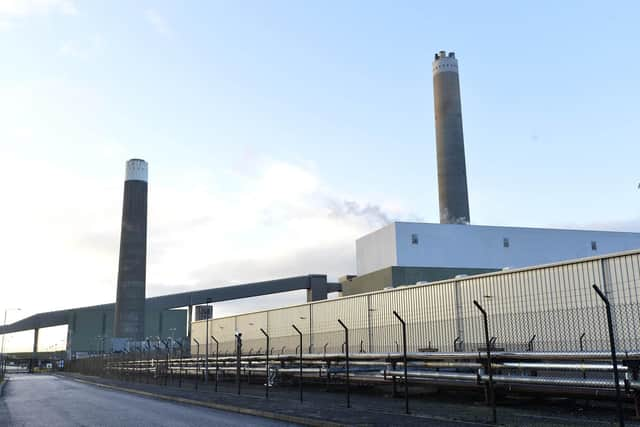Electricity blackouts predicted in Northern Ireland in new report by grid operator, with worst-case scenario for this winter showing demand outstripping supply
and live on Freeview channel 276
This comes amid warnings in Great Britain that planned three-hour blackouts could be needed in some areas to protect energy supplies for heating homes and businesses.
The possibility of blackouts in Northern Ireland was raised in an annual report published by SONI (Systems Operators Northern Ireland) on Thursday.
Advertisement
Hide AdAdvertisement
Hide AdThe 'Electricity Supply and Demand Forecast', published jointly by SONI and the Republic of Ireland based EirGrid, warns that the risk of blackouts is higher in 2024 and 2025 due to environmental requirements limiting the operating hours of the coal-fired Kilroot power station.


The power station was given special dispensation to continue operating during the pandemic, but environmental legislation means coal-fired stations are being phased out in favour of cleaner energy sources. A new combined-cycle gas turbine is expected to be installed at Kilroot and become operational by 2026.
Blackouts this winter, meanwhile, are considered unlikely.
The report lists three potential scenarios over the next decade - one with high demand, one with low, and a 'median' scenario - based on factors such as weather, the roll-out of new technology, and economic factors linked to industry and commerce.
An exceptionally cold winter this year, like that experienced in Northern Ireland in 2010-11, would see greater demand on electricity supply.
Advertisement
Hide AdAdvertisement
Hide AdThe report's authors explain: "Predicting future electricity demand is a complex task. A demand forecast is developed for each jurisdiction, and these are then combined to create a total demand forecast for All-Island studies."
Under the worst-case scenario put forward in the report, the high demand estimate would mean Northern Ireland's electricity supply fails to keep up this winter.
The situation would deteriorate, it estimates, throughout the following three years until supply picks up in 2026 when new gas turbines come online.
The median forecast, considered the most realistic, shows supply matching demand throughout this year and next before falling into deficit in 2024 and 2025 - meaning electricity blackouts are likely.
Advertisement
Hide AdAdvertisement
Hide AdEven the best-case scenario put forward by SONI shows a deficit in 2025.
A spokesperson for the grid operator said: "SONI’s forecast set out in the Generation Capacity Statement (GCS) shows that while there will be a largely stable demand for electricity over the coming years, there will be challenges over the next four years (2022-25), particularly during winter periods."
The longer-term outlook, however, is more positive according to SONI.
"The electricity system operator for Northern Ireland (SONI) is forecasting a surplus of generation from 2026 until 2031," the spokesperson said.
Advertisement
Hide AdAdvertisement
Hide AdIn Great Britain, meanwhile, the National Grid Electricity System Operator is planning for what would happen if there were no imports of electricity from Europe and insufficient gas supplies.
To tackle a loss of imports from France, Belgium and the Netherlands, there are two gigawatts of coal-fired power plants on stand-by to fire up if needed to meet demand.
People are being encouraged to sign up with their electricity supplier to a scheme which will give them money back on their bills to shift their use of power away from times of high demand to help prevent blackouts.
That could mean putting on the dishwasher or washing machine overnight or charging an EV at off-peak times.